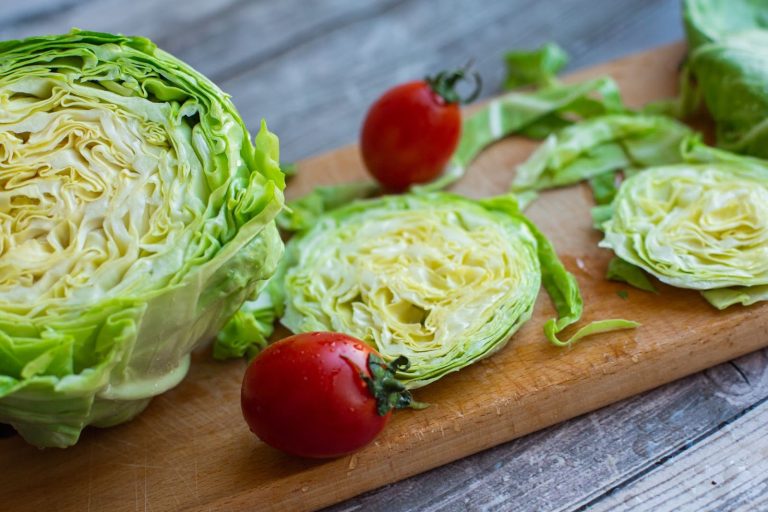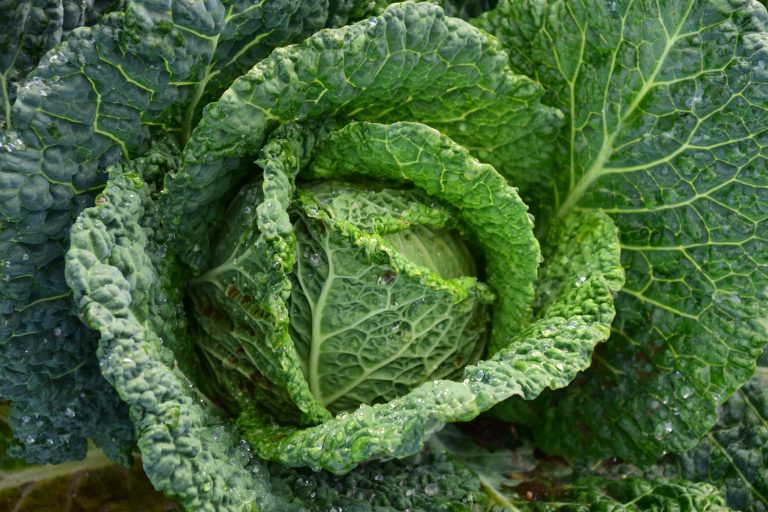Cabbage, a leafy green vegetable, is often overlooked when it comes to healthy eating.
Photo by Sebastian Coman Photography
However, it is packed with essential nutrients that are proven to have many health benefits.
Whether you are a food blogger, foodie, or on a vegan diet, you will definitely enjoy the 10 surprising health benefits of cabbage that we will be discussing in this blog post.
Table of Contents
10 Surprising Health Benefits of Cabbage
Reduces inflammation
Cabbage contains significant amounts of antioxidants that can help reduce inflammation in the body. Inflammation is linked to various chronic diseases such as heart disease, cancer, and arthritis.
Promotes healthy digestion
Cabbage is rich in fiber which improves digestion, prevents constipation, and maintains a healthy gut bacteria balance.
Boosts the immune system
Cabbage is rich in vitamin C, an antioxidant that helps boost the immune system and fight off infections.
Promotes weight loss
Cabbage is low in calories and high in fiber, making it an excellent food for weight loss. It also contains a compound called sulforaphane which has been shown to reduce belly fat.
May help prevent cancer
Cabbage contains compounds that have been shown to have anticancer properties. Studies have shown that it may help prevent certain types of cancer such as lung, colon, and breast cancer.
Reduces cholesterol levels
Cabbage contains a compound called glucosinolate which has been shown to lower cholesterol levels. This reduces the risk of heart disease and stroke.
Improves vision
Cabbage is rich in vitamin A, which is essential for eye health. It can help prevent macular degeneration and cataracts.
Helps maintain healthy skin
Cabbage is a rich source of vitamin C, which is essential for collagen production. Collagen is necessary for healthy skin, hair, and nails.
May help regulate blood pressure
Cabbage contains potassium, which is proven to help regulate blood pressure. This reduces the risk of heart disease and stroke.
Anti-aging properties
Cabbage is rich in antioxidants that help prevent premature aging. It also contains vitamin C, which plays a vital role in collagen production, keeping the skin looking youthful.
Final Thoughts
Overall, cabbage is a highly nutritious vegetable that can provide many health benefits. It is packed with essential vitamins, fiber, and antioxidants that improve digestion, boost the immune system, and reduce the risk of chronic diseases.
Adding cabbage to your diet is a great way to improve your health and increase your nutrient intake. It is a versatile vegetable that can be eaten raw, cooked, or fermented, making it easy to incorporate into your daily routine.
So, go ahead and give cabbage a try, and you will be surprised by the many health benefits it provides.
Yes, cabbage can be frozen Yes, cabbage can sometimes cause gas in some individuals. Cabbage, like many cruciferous vegetables (such as broccoli, cauliflower, and Brussels sprouts), contains sugars and fibers that can be difficult for some people to digest fully. Yes, cabbage can sometimes cause diarrhea in some individuals. Yes, cabbage can be eaten raw. Cabbage is generally considered to be a low-acid food and is not a common trigger for heartburn in most people. Heartburn occurs when stomach acid flows back into the esophagus, causing a burning sensation in the chest and throat. Foods that are high in acid content, such as citrus fruits, tomatoes, and certain spicy foods, are more likely to trigger heartburn. Cabbage worms are not poisonous to humans or animals if ingested. They are the larvae of certain species of moths, such as the cabbage white butterfly (Pieris rapae), and they primarily feed on the leaves of plants in the Brassicaceae family, which includes cabbage, broccoli, cauliflower, and other similar vegetables.FAQ
Can cabbage be frozen?
Can cabbage cause gas?
Can cabbage cause diarrhea?
Can cabbage be eaten raw?
Can cabbage cause heartburn?
Are cabbage worms poisonous?






